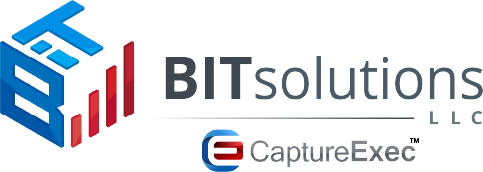As you review the various types of CRM capabilities that exist across many of your potential solutions, it can be a challenge to define the types of capabilities that are most important to your organization. Elaborate branding may have you focused on specific capabilities that are not necessarily aligned with what adds the most value to your organization, especially since the pipeline of a government contractor can be incredibly different from other organizations’ pipelines.
Is there a true need for your organization to access the CRM via an app, if the information captured doesn’t specifically address the strategic direction and processes of your organization?
Probably not.
What is most important is to have a system that saves time. Our jobs are to be in front of customers, teammates and members of the industry so that they better understand who we are and what we can do for them. All additional functionalities aside, there are three main areas that should garner the most attention as you are reviewing CRMs.
Integration with Microsoft
Few would argue with the notion that we are a Microsoft-dominated world, Mac users may gasp aloud – but they, too, have Microsoft products available. As such, we require integration with the products we use most. To easily incorporate existing artifacts, data and content, automated integration with Microsoft is an absolute must-have for any CRM.
- Import: No value is provided if you are forced to continuously recreate content you’ve already developed, or are currently utilizing on a regular basis. Additionally, most of the data that you download from business intelligence platforms are downloaded as a Microsoft XLS or CSV file. Your CRM system should have the capability to easily import the information you’ve downloaded from other sources.
- Integrate: We also spend (waste) an incredible amount of time cutting and pasting information from different systems and creating PowerPoint, Word and Excel presentations. So make certain you look for a system that fully integrates with all three programs.
What Questions to Ask, and When to Ask Them
Secondly, it is very important to your business that the CRM have the capability to tell a sales person what questions to ask, and when to ask them. There are some key intervals within the business development and capture process in which asking the right questions at that ideal moment can set your path in the direction of success. Leaving it up to the individual Capture Manager to decide what and when questions need to be asked can leave your company falling behind. Utilizing a system that inherently guides this aspect of your process is essential to your capture success.
Develop a Repeatable Capture Management Process
Lastly, implementing a CRM that is specifically developed to define a completely repeatable, ISO-like sales process provides long-lasting value. In addition to providing executives with complete management capabilities, implementing specific and strategic processes results in overall efficiencies for the organization, and real-time tracking of specific opportunities, decisions points, and outcomes. New employees become a plug-and-play as they seamlessly fit into your defined process and understand what their role and process will be.
These are fundamental capabilities as you continue to grow your business, and seek industry-recognized certifications. Aside from that, repeatable processes ensure that everyone in your organization is focused on the same outcomes, incorporating lessons learned and new workflows seamlessly.
Now, the questions remain… What other capabilities do you consider critical to your organization’s success? And which CRM systems offer them?

